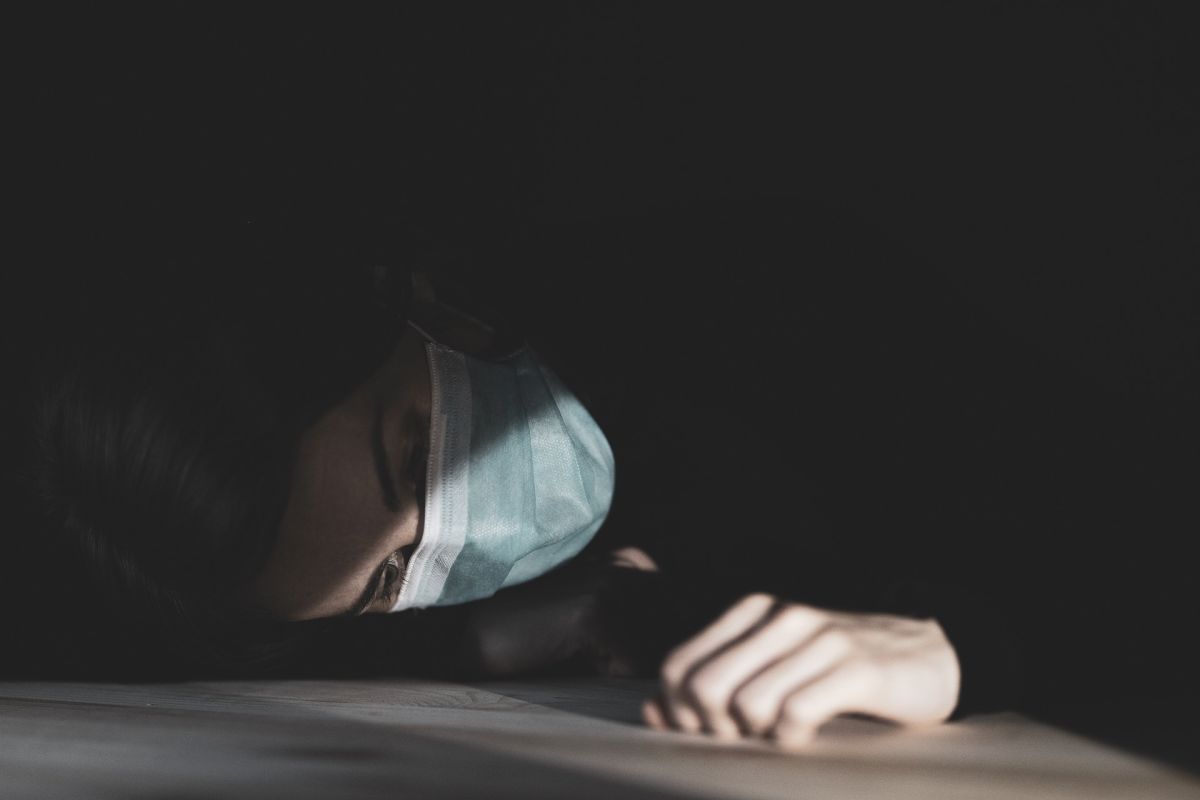Covid dreams and nightmares

“She disappeared. I ran around panicking, holding a dead baby and trying to resuscitate it. But I couldn’t. I cried so much that I woke myself up,” first year Lauren tells of a uniquely disturbing nightmare she experienced earlier this year.
When the pandemic hit home in March, it left turmoil in its wake. People’s daily lives were uprooted and flipped on their heads; the night was not spared.
“I never remember my dreams because they’re typically so normal,” Lauren told me, “but this one. . . It was very vivid.”
Dream Recall
Lauren is not the only university student who has experienced new, peculiar dreaming patterns. Out of personal interest, I conducted a poll on Instagram and found that of 280 mostly university-aged people 194, or 69% percent, reported having unusually anxious, vivid, and/or strange dreams since the outbreak of Covid-19. I knew then, that there was something more to this seemingly shared phenomenon.
In fact, research teams at institutions worldwide have uncovered similar data. One study from the Lyon Neuroscience Research Center published a 35% uptick in dream recall since March, noting a tendency towards more negative dreams. A study by the American Psychological Association which sampled 3,031 adults reported an increase of 29% during the same time frame.
So, pandemic dreaming is definitely a thing; the question scientists are now attempting to answer is why.
REM Sleep
We attribute most of our dreams to Rapid Eye Movement (REM) sleep, which is essentially really deep sleeping stages. A professor of Neurology at Boston University School of Medicine, Patrick McNamara, explains that the brain processes which occur during REM sleep are actually similar to those that occur during an acid trip. Both activate nerve receptors called 5-HT2A which shut off the dorsal prefrontal cortex. This triggers a state of “emotional disinhibition” during which emotions overwhelm the consciousness. Because of this, REM sleep is the source of many of our most intense and vivid dreams.
Scientists have come up with a number of reasons why Covid-19 might be affecting REM sleep. The most obvious is that lockdown allows for more time to sleep, and in turn more sleep allows for more time to dream. When people work from home or not at all, commutes and early morning routines become altered or eliminated. According to Scientific American, this caused time spent sleeping in the U.S. to increase almost 20% nationwide in early lockdown between March 12 and 27.
Notably, REM sleep occurs in cycles of about 90 minutes, each cycle building on the last to become progressively more intense. By early to mid-morning, dreams are likely to present clearest and strongest. Thus, your lockdown lie-ins could be leading to deeper dreams.
Lockdown anxiety
Another viable explanation is that our dream functions are being overwhelmed by the profound anxiety and stress of the pandemic. REM sleep and dreaming are critical to our ability to consolidate experiences into memories and to regulate emotions, among other things.
When working properly, dreams tend to draw on different experiences that elicit similar emotions, integrating our experiences and emotions in ways that are often metaphoric, explains dream and nightmare researcher Ernest Hartmann. Through this process, dreams help us safely make sense of events—especially abnormal or disturbing ones.
Hartmann suggests, though, that an excess of trauma (such as, I don’t know, a pandemic) can upset this dream function, leading to recurring and realistic nightmares. Like Lauren expressed, vivid and scary dreams can easily startle us awake, and waking up in the middle of a dream only increases our chances of remembering it.
Whether an individual is affected by “pandemic dreaming” likely has to do with that person’s relationship to the trauma inflicted by Covid-19 and their ability to cope. If you are experiencing strange or upsetting dreams, or if the pandemic is negatively impacting your mental health in other ways, know there are resources available.
Mental Health Support
If you live in England, you can call 116 123 to speak to trained volunteers with the NHS. For students at the University of Manchester, counselling services are available through completing this online questionnaire and by calling 01612752864 to book an appointment. Or, if you need immediate support, you can call the University’s new confidential mental health helpline on 0800 028 3766, or message a trained advisor through the My Healthy Advantage app – you will need to download the app and register with a unique code which you can find in My Manchester.
For those who might not require professional support but would like to work on improving negative dreaming habits, there are, of course, other routes. Lucid dreaming, for example, is the practice of becoming aware of your thoughts and emotions as your dreams play out. It has been shown in some cases to help individuals gain more control over their dream states, achieving greater peace and better sleep.
Though science is still working to explain why our dreams may be changing, there are realistic ways to manage in the meantime. And, like we have done throughout the pandemic, we can always turn to one another. From my Instagram poll to studies at institutes in France and the US, one thing is certain- the numbers say we’re not alone.







